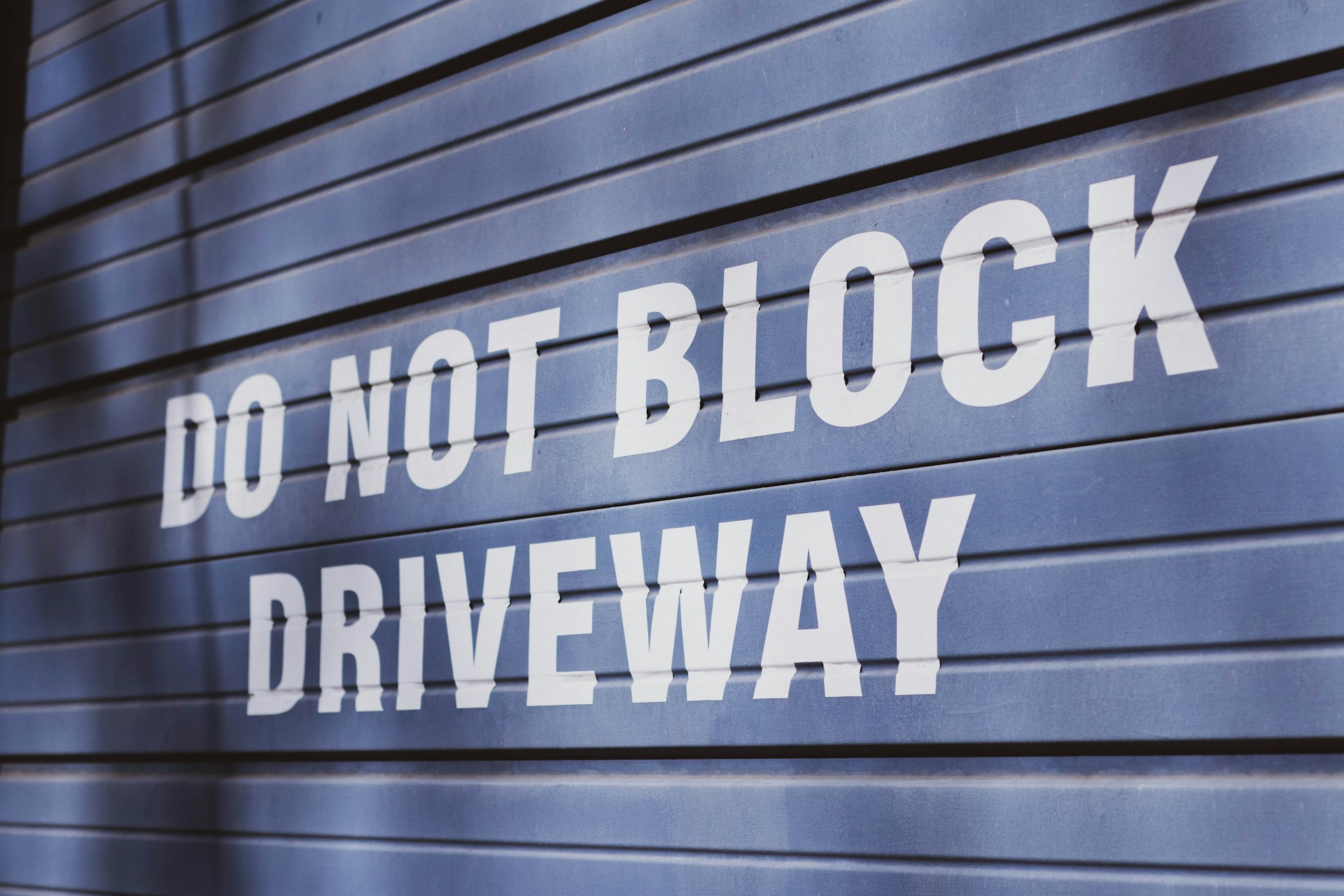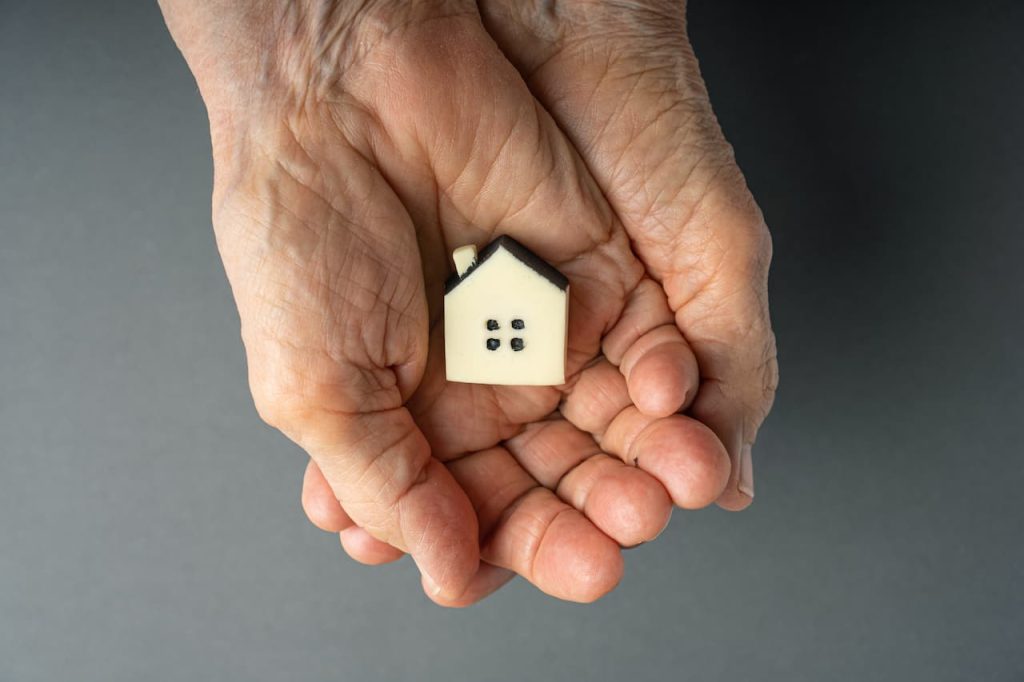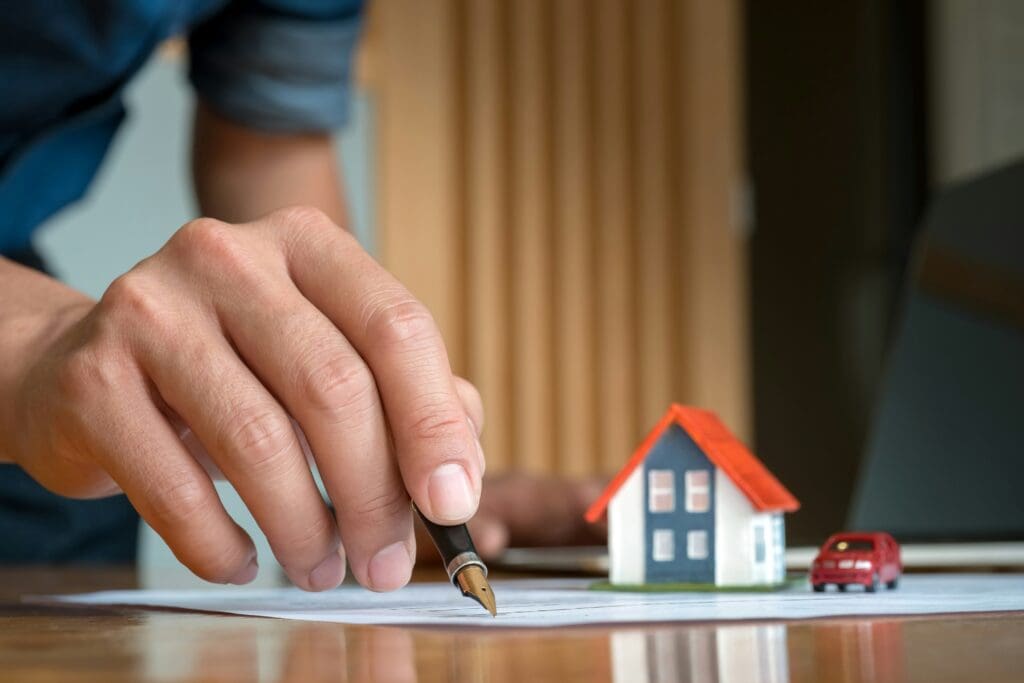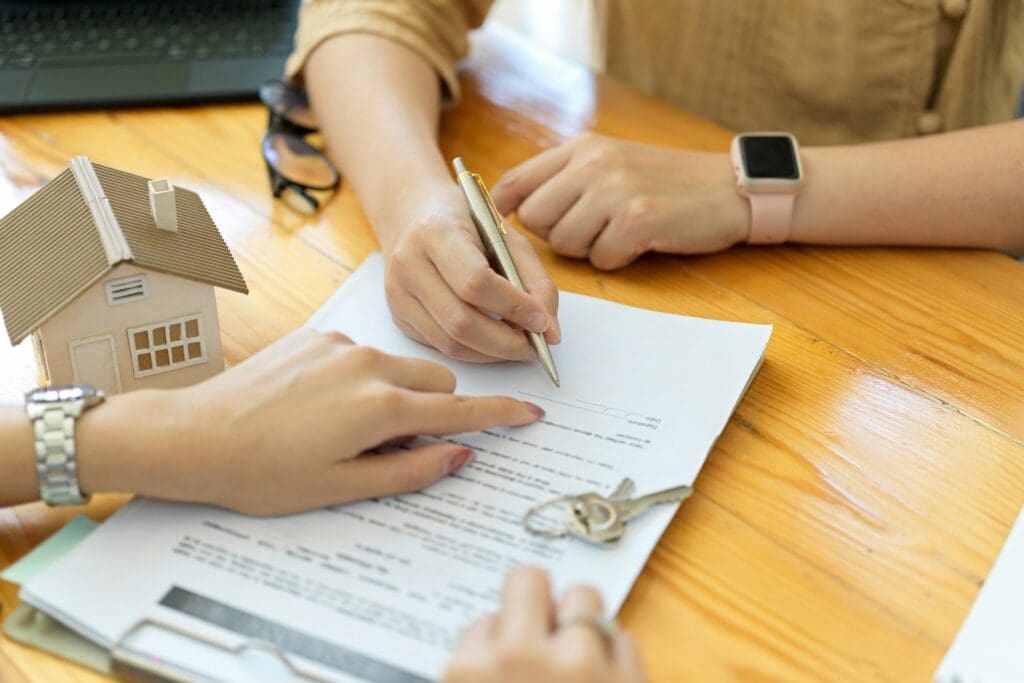What are the Rules for A Shared Driveway?

Estimated reading time 8 minutes
If you have recently bought a house with a shared driveway, or have had neighbours start to make changes to your shared space, it would be worth knowing the rules for shared driveways in the UK to ensure nobody falls foul of the law.
A shared driveway is exactly what it sounds like – it’s a shared space between houses that more than one household requires access to.
Interestingly, this was something of a trend in the 1930s. Garages tended to be built at the back of houses, and this meant a driveway would have to be shared for owners to access them.
Fast forward to today, and shared driveways still exist, but these come from a developer's desire to utilise space and fit as many homes as possible into the land they are building on.
Despite shared driveways being shared, you’ll commonly find them separated by a line of turf, a bush or different coloured surfaces.
Shared driveways are subject to some simple rules, but much depends on the type of shared driveway you have.
Accessways
In most cases, your driveway will be split between the two houses, with a clear indication of which part of the driveway belongs to which property. This is known as an accessway and does not require a contract to be drawn up between the households.
Instead, each homeowner is responsible for their section of the driveway. This would include keeping it clean and ensuring access to either side is not restricted.
When it comes to repairs and maintenance, it is generally accepted that both homeowners will take care of their side. However, the property deeds will contain specific rules regarding this.
Easements
A shared driveway easement is needed when the driveway is owned by just one household. In terms of practicality, this isn’t ideal. However, a contract (known as the easement) can be drawn up that outlines the use of the driveway and any responsibilities that come with it. This would need to be drawn up by a solicitor and clearly show:
- Who the agreement is between (stating who is the landowner and who will have shared driveway access)
- What costs may apply to both parties (if any)
- Whether there are any restrictions in place on the use of the driveway (this could include how many vehicles can use it, which type of vehicles can be kept on it etc.)
- The rights and responsibilities for both parties
- The length of the agreement
- What might happen if either party fails to fulfil the obligations of the contract
Owning a shared driveway is mostly problem-free, although some issues may occasionally arise.
Parking
Probably the most common issue found among users of shared driveways is parking. If you have not defined clear parking spaces or had a shared driveway easement put in place, occupiers of the other home may feel they can park anywhere. This could lead to expensive and time-consuming disputes.
Remedy this by clearly defining the two sides of the driveway or, if you have sole ownership, have a solicitor draw up a shared driveway easement.
Maintenance issues
If your shared driveway is equally split, you’ll likely each take care of your share. However, due to the deeds possibly indicating that one person has more responsibility than the other, this could lead to problems. The best option is to speak with your neighbours and agree on repair and maintenance responsibilities.
Where one homeowner has full responsibility for the shared driveway, they should have an easement created so both households can look after their sections of the drive.
Anti-social behaviour
This may sound odd, but a driveway can become a hub of loud and disruptive activity. Some people may use their driveway for DIY, as a play area for their children or for social gatherings.
This could soon lead to disputes between households. To help mitigate this potential problem, speak to the other homeowners in advance; or, where an easement is in place, have rules surrounding the use of the driveway clearly outlined.
Cosmetic improvements
All homeowners strive to maintain good kerb appeal. It helps drive up the house value, after all. However, some cosmetic improvements to a driveway may be down to the personal taste of others, and not match yours.
As with the other problems you may face, you should speak to the neighbour when you move in. Clarify use of the driveway, and if an easement is in place, check that specific terms regarding potential cosmetic improvements are included.
It depends on the issue. Many disputes can be resolved by simply talking about them with your neighbour. If, for example, they occasionally encroach on your side of the driveway a little, a quick word about it may be all that is needed.
If a neighbour is constantly blocking access or behaving in an antisocial manner, you may need to consider other options.
Before you do anything, you should check your access rights. Your title deeds will clarify whether you have any. Luckily, these rights, known as express rights, remain with the property even when ownership changes. This means you could have more rights to the shared driveway than you initially thought. If no such rights are found in your title deeds, you’ll need a shared driveway easement.
Should a shared driveway easement have previously been in place, it will not appear in your property deeds. This is because easements do not pass on from owner to owner. These permissions or consents are informal agreements between two property owners for a specific period, and can be withdrawn at any time. Check if you have a shared driveway easement in place. As indicated earlier, this will clarify your rights and responsibilities.
With your rights understood, you can decide on the appropriate course of action for a driveway dispute.
Speaking to your neighbours
This is the easiest option to take, especially if you already get on well. A quick conversation could remedy the issue, and might even show that nobody was completely clear on their rights to the driveway.
Consult a mediator
Occasionally, your neighbour may be reluctant to engage with you over the issue. Before you escalate any further, suggest a mediator. This allows both parties to air their side of the story and allow an impartial person to help find a suitable resolution.
Seek legal advice
If you have tried talking to your neighbour and approaching a mediator has been rebuked, you could consider a solicitor. It’ll come at a cost, but with a letter from a legal expert to your neighbour outlining the potential legal issues they may face, this could help resolve the problem before it reaches court.
Get an injunction
This should be a last resort – it should only be considered if all other options have failed, and the issue caused by your neighbour is significant. For instance, if they regularly block your shared driveway access, make changes to it that do not comply with any agreements, or are frequently antisocial, it may be time to consider an injunction.
You can, as odd as it may sound. It is not something commonly done and would require the help of a solicitor to get the purchase over the line. As this would give you full ownership of the shared driveway, you’d need new title deeds for the property drawn up, too. The biggest potential risk would be the objection from the other owner. They could see their home lose value, and find that their access to the driveway has now been severely restricted.
If you are encountering neighbour disputes due to your shared driveway, or wish to cash in on the value a driveway brings, speak to Bettermove. Our team guarantees the sale of your home quickly. With two routes to sale, each built around your needs, simply reach out to us and see which one suits you best. We can either present your home to a network of cash house buyers, or we’ll buy your house directly from you. Either way, a sale is guaranteed, and what’s more, we sell your house for free. There are no hidden costs or high solicitor fees, just a quick sale that gives you 100% of the cash generated from it.



